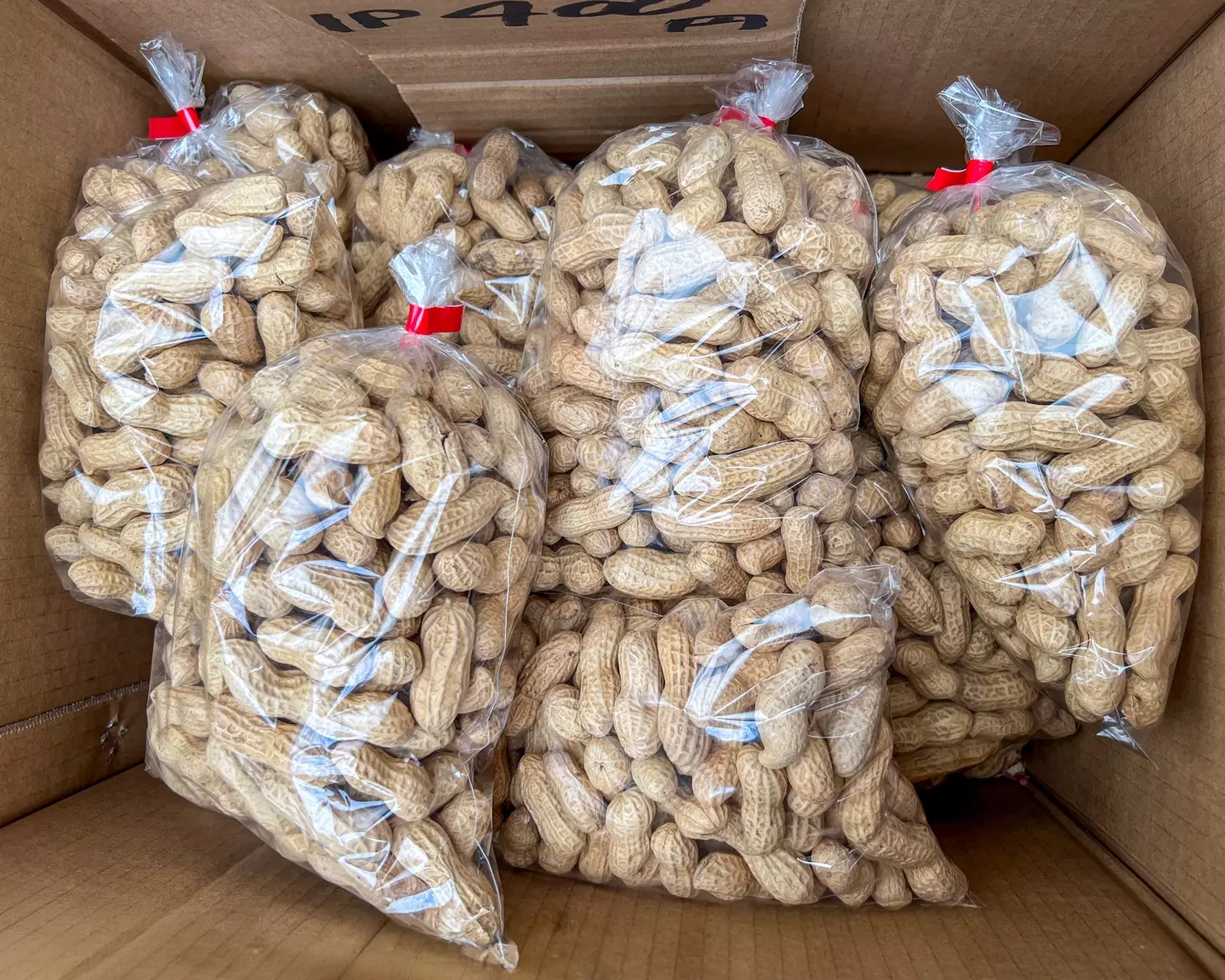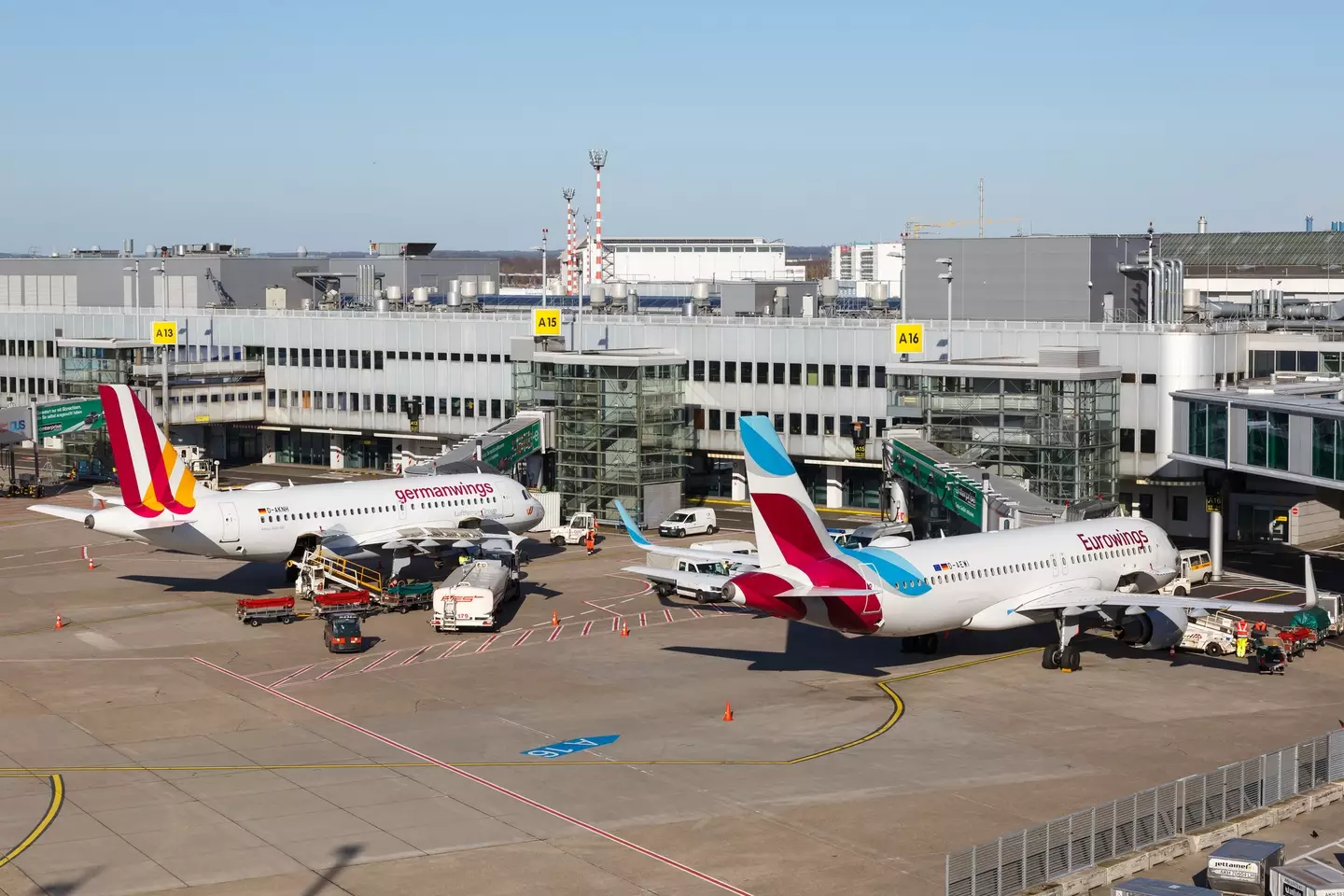
Having a nut allergy is a lifelong affliction that requires constant vigilance.
Asking whether nuts are included in a meal at a restaurant, poring over ingredients lists, and carrying unwieldy EpiPens all over the place are par for the course.
It’s also a lifelong reason to find bakeries and patisseries unexciting. After all, there’s only so many times you can browse some cakes, get your hopes up, and then have them dashed to discover all your ideal picks have got nuts in them.
On flights it can be a particularly pernicious problem for allergy sufferers.
Advert

In extreme cases, some nut allergy sufferers can react to airborne nut particles, and the recycled air on flights can carry those particles all around the plane.
As such, you may have been asked ahead of a flight not to eat nuts if a fellow passenger is an allergy sufferer.
Unfortunately one airline customer alleged that this request wasn’t made, but that airline staff were uncompromising in her request not to sell peanuts during the flight.
Leah Williams, who was 27 at the time of her flight in 2023, took a trip from Dusseldorf to London with Eurowings. Pre-flight, she informed the airline of her severe allergy.
However, she felt she was “left with no choice” when she asked staff not to serve peanut-based products to her fellow passengers. She alleged that staff refused her request, and so she bought all 48 packets of peanuts on-board.
The design firm worker from Alton, Hampshire spent almost £150 on the peanuts that she couldn’t eat.
She told The Mirror: “The stewards looked at me blankly like I was crazy and said, ‘But there is a lot, we’ll have to count them all.’ I said, ‘Please do count them and I will pay for them all, seeing as you have left me with no choice’.”
She continued: “Eurowings should be ashamed of how they handled this situation and for the way they made me feel.”
Eurowings has since responded, apologising with the caveat that her claims weren’t wholly accurate, in its view.
For one, the airline argued that Williams was “not forced” to buy all of the peanuts.
Of course, while a gun wasn’t held to her head, she no doubt felt forced by the risk that she might have a reaction if she didn’t prevent the peanuts’ sale to other customers.
“We are very sorry that the flight with us did not go as smoothly as planned and we regret any inconvenience this has caused Leah Williams," spokesperson Anke Carola Walter told LADbible.
“One thing in advance: Leah Williams was not forced to buy all packages of peanuts on board – on the contrary, our purser tried to offer her an alternative solution by informing all passengers sitting around her about Leah’s allergy.”
She added: “[Williams] agreed at first but then decided to still buy all the packages.”
Considering the potential for airborne particulates to travel around the plane, perhaps Williams felt the alternative offered by staff was insufficient.
The spokesperson continued by saying it was not possible to cater to every passenger’s allergy-related needs: “Eurowings operates more than 600 flights a day, carrying more than 80,000 passengers daily. As there are many causes for allergies and intolerances, it is not possible to exclude the possibility of their presence on board a plane.”
While there are many potential allergy triggers, catering to common and potentially-fatal ones is certainly possible. 1 in 50 children have a peanut allergy, while about 1 in 200 adults in the UK have a nut allergy.
Imagining that all 80,000 of Eurowings’ daily customers are adults, that could amount to 400 nut allergy sufferers flying with the airline every day. Some might consider that a significant enough figure to take nut allergy sufferers’ concerns seriously, not least when nut exposure can be fatal for them.

Eurowings noted, however, that its air filtration systems limited the likelihood of airborne particulates getting spread around a plane.
“However, the HEPA (high efficiency particulate air filter) filters used on board can help passengers suffering from cat hair and house-dust allergies, for example,” Walter said.
“The filtration system circulates the cabin air, which is then supplemented with outside air."
The statement added that staff were prepared to deal with medical emergencies should someone go into anaphylactic shock.
“Our medically trained cabin crew always has access to medication to provide emergency medical care in the event of an intolerance or allergic shock on board."
Reassuring, of course, but prevention is better than having to react to a life-threatening illness, not least when the passenger has warned the airline ahead of time.
Walter added: “We do recommend also carrying any necessary medication (allergy medication, EpiPen) in the hand baggage should passengers suffer from any allergies.
“A strong allergy sufferer should always be prepared for such an eventuality and has at least one, most of the time even two pens with anti-allergic with him/her as a preventive measure and usually informs our crews accordingly.”
Considering the level of precaution that Williams took to prevent peanuts from being sold on her flight, some might consider the recommendation to carry an EpiPen to be somewhat condescending.
Williams sought a refund for the cost of the peanuts, but it’s unclear whether she got one.
[FOODBible has contact Williams and Eurowings for comment]
Topics: Health
